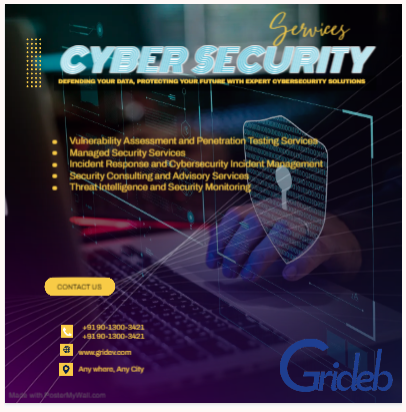Understanding the Importance of Cybersecurity in MLM
Sensitive Data Protection
MLM businesses handle a significant amount of sensitive data, including personal information of distributors and customers, financial details, and business transactions.
Personal Information: Protecting the personal data of distributors and customers is crucial to maintain trust and comply with data protection regulations.
Financial Security: Ensuring the security of financial transactions and records is essential to prevent fraud and financial losses.
Reputation Management
Cybersecurity breaches can severely damage an MLM company's reputation, leading to loss of trust and credibility.
Trust and Loyalty: Maintaining strong cybersecurity measures helps in building and sustaining trust and loyalty among distributors and customers.
Brand Integrity: Protecting the business from cyber attacks helps preserve the integrity and reputation of the brand.
Common Cyber Threats in MLM
Phishing Attacks
Phishing is a common cyber threat where attackers send fraudulent messages to trick individuals into revealing sensitive information.
Email Scams: Cybercriminals often use email scams to impersonate company officials or trusted contacts, convincing recipients to share passwords or financial information.
Fake Websites: Attackers may create fake websites that mimic the MLM company's official site to steal login credentials.
Malware and Ransomware
Malware and ransomware attacks involve malicious software designed to disrupt, damage, or gain unauthorized access to computer systems.
Data Breach: Malware can lead to data breaches, compromising sensitive information stored in the company’s systems.
System Disruption: Ransomware can lock users out of their systems until a ransom is paid, disrupting business operations.
Insider Threats
Insider threats involve malicious actions taken by individuals within the organization, such as employees or distributors.
Data Theft: Insiders with access to sensitive data might steal information for personal gain or to harm the company.
Sabotage: Disgruntled employees or distributors might sabotage systems or leak confidential information.
Best Practices for Cybersecurity in MLM
Implement Strong Access Controls
Limiting access to sensitive information and systems is vital to prevent unauthorized access.
Role-Based Access: Implement role-based access controls to ensure that only authorized personnel can access specific data and systems.
Multi-Factor Authentication (MFA): Use MFA to add an extra layer of security for login processes, making it harder for attackers to gain access.
Regular Security Training
Educating employees and distributors about cybersecurity best practices is crucial for preventing cyber attacks.
Phishing Awareness: Conduct regular training sessions to help individuals recognize and avoid phishing attempts.
Security Protocols: Ensure that everyone in the organization understands and follows security protocols, such as using strong passwords and not sharing login credentials.
Secure Communication Channels
Using secure communication channels helps protect sensitive information from being intercepted.
Encryption: Implement encryption for emails, messages, and data transfers to protect information from unauthorized access.
Secure Platforms: Use secure communication platforms for company announcements and sensitive discussions.
Regular Security Audits and Updates
Conducting regular security audits and keeping systems up to date are essential for identifying and addressing vulnerabilities.
Vulnerability Assessments: Perform regular vulnerability assessments to identify and fix security weaknesses in the company’s systems.
Software Updates: Ensure that all software, including security tools, is updated regularly to protect against the latest threats.
Develop an Incident Response Plan
Having a well-defined incident response plan helps the organization respond quickly and effectively to cyber attacks.
Response Team: Establish a dedicated response team to handle cybersecurity incidents and minimize damage.
Recovery Procedures: Develop procedures for data recovery and system restoration to ensure business continuity in case of an attack.
Leveraging Technology for Enhanced Security
Advanced Security Tools
Utilizing advanced security tools can provide robust protection against cyber threats.
Antivirus and Anti-Malware: Deploy antivirus and anti-malware solutions to detect and remove malicious software.
Firewalls: Use firewalls to monitor and control incoming and outgoing network traffic, creating a barrier between trusted and untrusted networks.
Cybersecurity Partnerships
Partnering with cybersecurity firms can enhance the MLM company’s security posture.
Security Consulting: Engage with cybersecurity consultants to evaluate and improve security measures.
Managed Security Services: Consider using managed security services for continuous monitoring and protection against cyber threats.
Conclusion
In the digital landscape, cybersecurity is indispensable for MLM businesses to protect their sensitive data, maintain trust, and ensure smooth operations. By understanding the common cyber threats and implementing best practices, MLM companies can safeguard their networks and secure their future. Proactive measures, regular training, and leveraging advanced technologies are key to building a resilient cybersecurity framework that can withstand evolving cyber threats. #G611748


.png)
.png)
.png)
.png)
.png)

